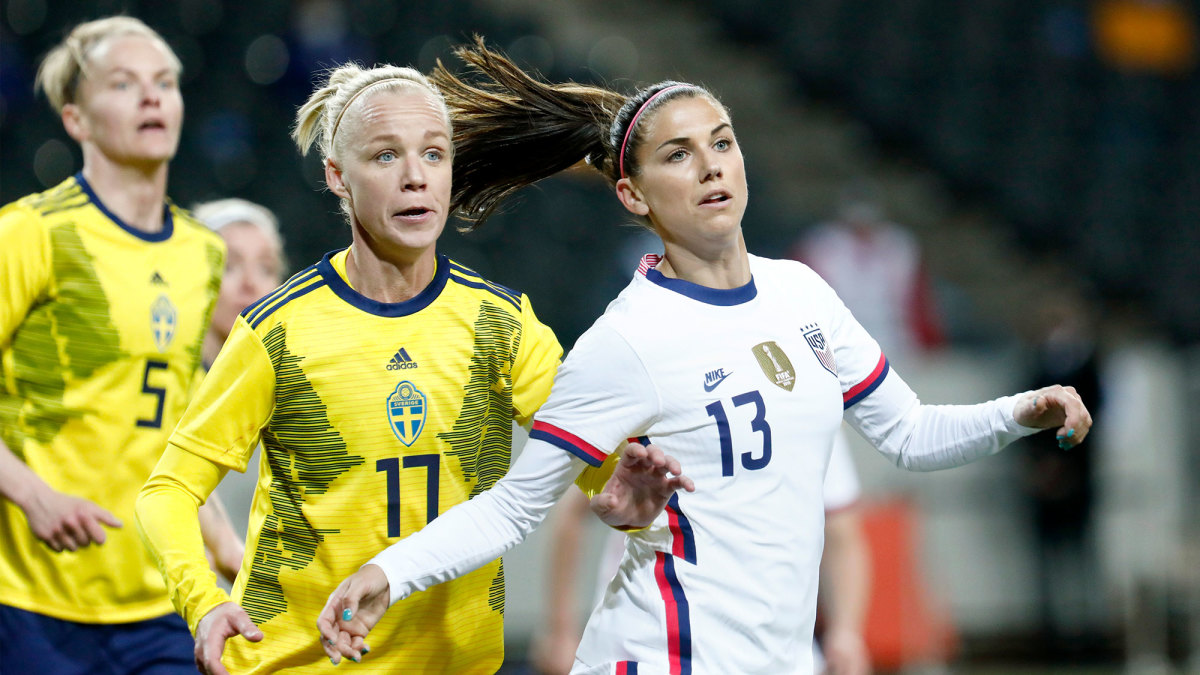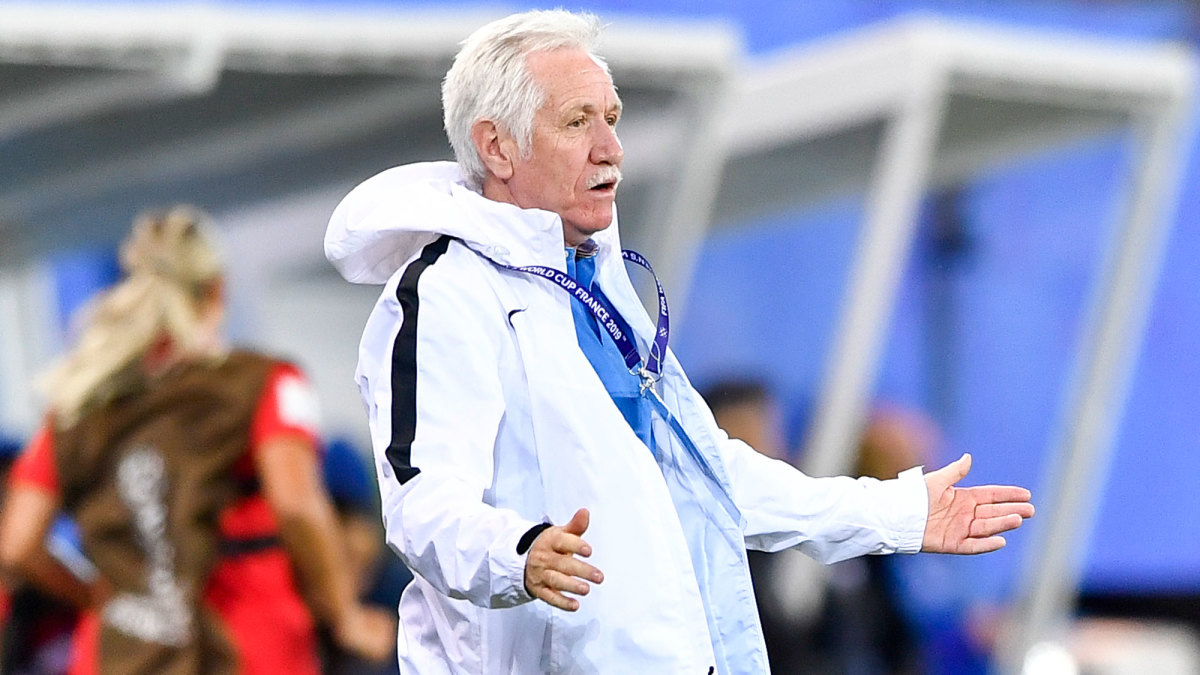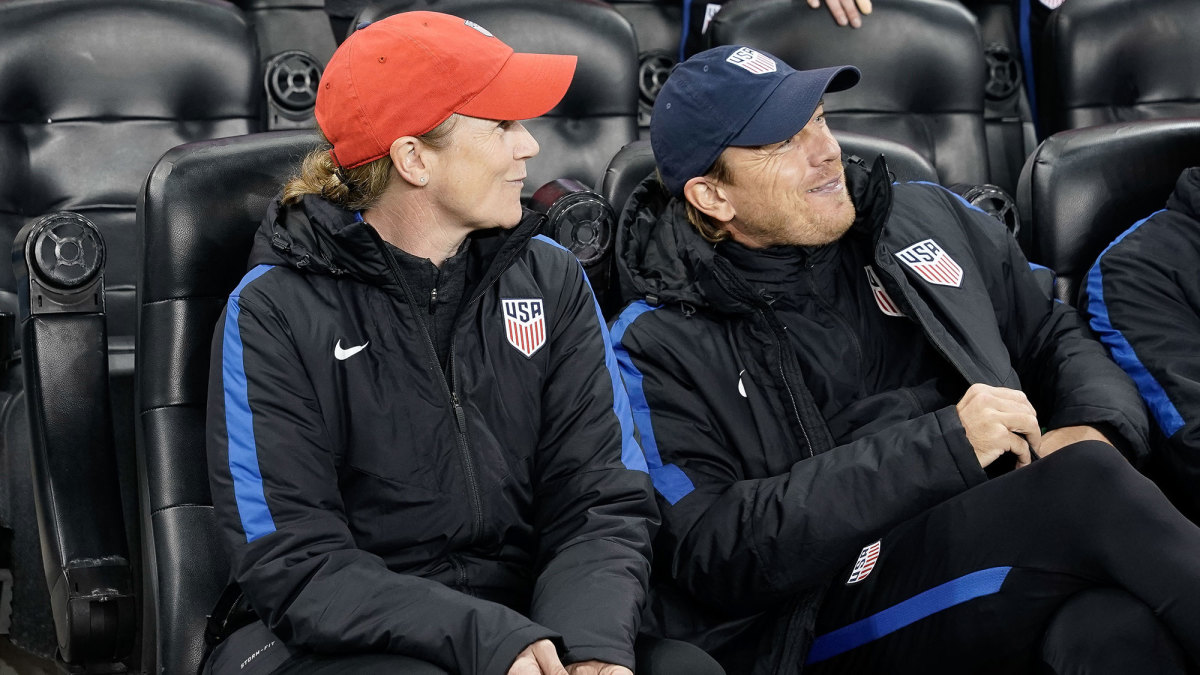USWNT Will Take Trip Down Memory Road in Olympics Group
In the wee hours of Wednesday morning in the U.S., the women's national team learned its path to the medal stand at this summer's Olympics, and as it turns out, the group stage will play out like an episode of "This Is Your Life."
First, it'll be Sweden. Because of course Sweden. The U.S. and Sweden have met in six World Cups and two previous Olympics. Sweden famously knocked the U.S. out in the 2016 quarterfinals in Rio—the first time the U.S. failed to reach the gold medal game in six Olympics—sparking Hope Solo's "cowards" remarks and a rare setback that was ultimately avenged with the team's 2019 Women's World Cup triumph.
Then, it'll be New Zealand, which is coached by former U.S. manager Tom Sermanni, followed by the other 2023 Women's World Cup co-host, Australia, which is coached by another person from the USA's past, Jill Ellis and Pia Sundhage's former assistant, Tony Gustavsson.
The U.S. women will set out to make history by being the first team to win Olympic gold directly after winning a World Cup—and to do so they'll have to confront some of their history.
The groups are locked in 🔒 🌎
— FIFA Women's World Cup (@FIFAWWC) April 21, 2021
E: 🇯🇵🇨🇦🇬🇧🇨🇱
F: 🇨🇳🇧🇷🇿🇲🇳🇱
G: 🇸🇪🇺🇸🇦🇺🇳🇿
🥇 Who is your favourite for @Olympics gold?#OlympicFootball #Tokyo2020 pic.twitter.com/A3UR6H1YYA
The pairings weren't all that surprising in the end, based on how finite the 12-team field is and how the draw structure allows limited options. Placed in Pot 1 with host Japan and 2019 World Cup finalist Netherlands, the U.S. could only draw seven of the other 11 contenders, with nations not being able to be grouped with others from their confederation. That left either Sweden or Team Great Britain out of the second pot, Australia or China out of the third pot and then any of New Zealand, Chile or Zambia from the fourth.
“After waiting an extra year for this Olympics, the draw represents a real milestone in our journey and helps us focus in even more on our preparation and what we need to do to achieve our goals,” U.S. coach Vlatko Andonovski said in a statement. “We have great respect for all three of our group opponents, and we know this tournament will push us to our limits both mentally and physically, as well as challenge us every game technically and tactically, so we will do everything we can in the next three months to prepare for success.”
The quartet is probably the toughest the U.S. could have drawn on paper. The knockout bracket, should the three seeds hold and top their groups, didn't do the U.S. any favors either, as it's on the side that could be required to beat group winners in both the semifinal and final. The Netherlands, conversely, wouldn't have to play another group winner until the gold medal game, should it handle its business.

The U.S. commences play vs. Sweden on July 21. In addition to having a storied history with the Swedes, they've also given the U.S. two of their toughest games since Andonovski took charge. The U.S. nearly blew a 3-0 lead to Sweden in Andonovski's debut as U.S. coach, settling for a 3-2 win. Two weeks ago, Sweden was minutes away from ending the USA's lengthy unbeaten run but was forced to settle for a 1-1 draw after Megan Rapinoe converted a penalty kick that was questionably awarded to the Americans.
On one hand, it's an extremely challenging way to start. On the other, it's not the worst thing to have their inevitable meeting occur in the group stage, where the top two finishers go through, as do the top two third-place finishers.
“Sweden is obviously fresh in our minds coming off the match in Stockholm, but we of course already knew how talented they are, how athletic they are and how dedicated they are to their tactics." Andonovski said. "The USA and Sweden have a long history of meeting in world championships, and this will surely be another great match to open the tournament.”

In addition to the Sermanni connection, the matchup with New Zealand will mark the fourth consecutive Olympics that the U.S. and Football Ferns have done battle, with the Americans winning each of the three previous matchups.
“One thing we know New Zealand brings every time we play them is tremendous heart," Andonovski said. "They also have some very experienced players who have played in multiple world championships and in top leagues, so they won’t be intimidated by the moment. We also know that they will be organized in the back and not afraid to get forward, so playing New Zealand always brings challenges.”
Gustavsson's Australia, meanwhile, is a bit of an enigma. It has a strong pedigree and has played the U.S. relatively tough in recent years, including a 1-0 win in 2018 for its only triumph over the Americans in 30 all-time meetings. It also boasts in Sam Kerr one of the world's preeminent players. But its last two games were eye-opening for the wrong reasons, with a 5-2 defeat to Germany and 5-0 loss to the Netherlands suggesting there's plenty of fine-tuning required in the next three months.

“When Australia is playing well, they can be one of the world’s best teams," Andonovski said. "We all know they have as much attacking talent as any team in the Olympics, and that always makes USA-Australia games very entertaining for the fans and guaranteed to stretch us physically.”
While the U.S. learned its fate in the early hours of Wednesday, U.S. fans at home will have to get accustomed to early start times (or late, depending on your lifestyle) this summer due to the time difference in Japan. The opener vs. Sweden is slated for a 4:30 a.m. ET first kick, with the New Zealand game on July 24 starting at 7:30 a.m. ET and the group closer vs. Australia on July 27 commencing at 4 a.m. ET.
More Women's Soccer Coverage:
